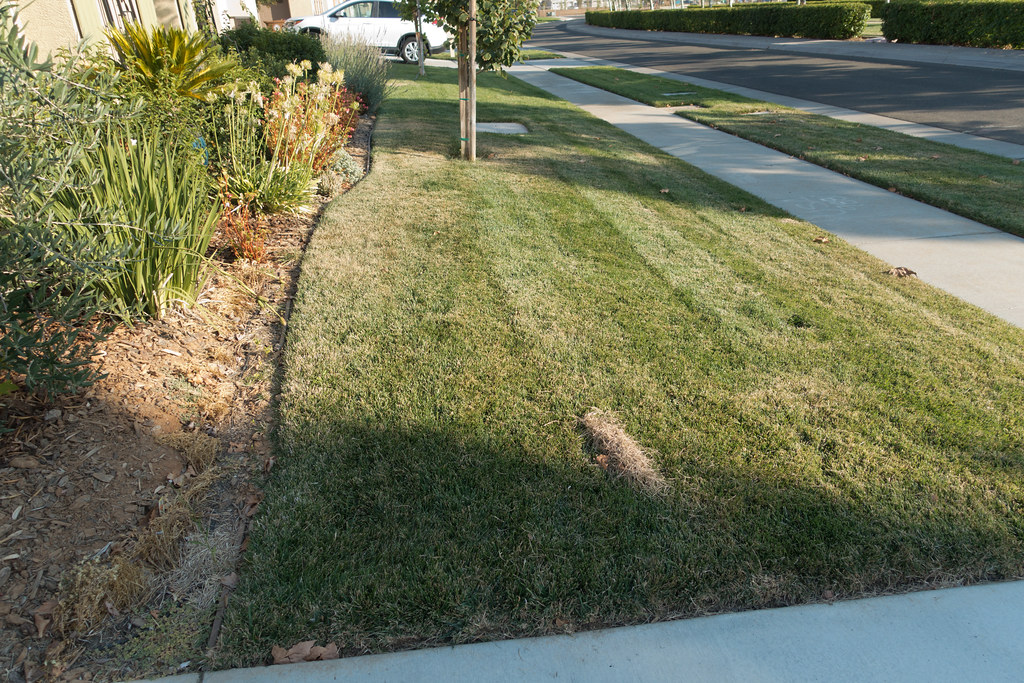Maintaining a lush, green lawn without relying on synthetic chemicals is not only possible but also beneficial for the environment, your family’s health, and local wildlife. By adopting organic lawn care practices, you can achieve a thriving yard that remains sustainable and beautiful. In this article, we’ll explore essential organic lawn care tips for a chemical-free yard, helping you create an eco-friendly outdoor space.
Why Choose Organic Lawn Care?
Going chemical-free isn’t just a trend—it’s a conscious decision that can enhance soil health, protect water quality, and support beneficial organisms. Chemical fertilizers and pesticides can contribute to soil degradation and pollution, while organic methods encourage biodiversity and resilience. Plus, with a bit of patience and dedication, you’ll enjoy a healthier, greener lawn for years to come.
Soil Health: The Foundation of a Chemical-Free Lawn
Healthy soil is the backbone of any thriving lawn. Follow these organic tips to improve soil quality naturally:
- Test Your Soil: Conduct a soil test to determine pH levels and nutrient content. This will help you understand what your lawn needs.
- Add Organic Matter: Enrich your soil with compost, grass clippings, and mulch to improve its structure and fertility.
- Aerate Regularly: Aerating the lawn allows air, water, and nutrients to penetrate deeper, promoting stronger root growth.
Choosing the Right Grass Variety
Selecting the right grass type for your region and climate is essential for a low-maintenance, chemical-free lawn. Some grass varieties require less water and are more resistant to pests naturally. Popular organic options include:
- Fescue: Drought-tolerant and shade-loving.
- Buffalo Grass: Ideal for warm climates and minimal maintenance.
- Perennial Ryegrass: Grows quickly and helps with erosion control.
Mowing Techniques for a Healthier Lawn
Proper mowing practices can significantly impact your lawn’s health. Here are a few tips to keep in mind:
- Set Mower Blades High: Cutting grass too short weakens its root system and invites weeds.
- Leave Grass Clippings: These act as a natural mulch, returning nutrients to the soil.
- Mow Regularly: Maintaining a consistent schedule encourages dense growth and discourages weeds.
Watering Wisely
Watering correctly is key to maintaining a vibrant, chemical-free lawn. Implement these strategies for effective hydration:
- Water Deeply but Infrequently: Encourages deep root growth and drought resistance.
- Morning Watering: Reduces water loss due to evaporation and prevents fungal growth.
- Use Rain Barrels: Collecting rainwater is an eco-friendly way to irrigate your lawn naturally.

Natural Weed and Pest Control
Keeping weeds and pests at bay without chemicals requires a proactive approach. Try these organic methods:
- Manual Weeding: Pull weeds by hand or use tools like a weed puller to remove them at the root.
- Corn Gluten Meal: Acts as a natural pre-emergent weed suppressant.
- Beneficial Insects: Introduce ladybugs and nematodes to control harmful pests naturally.
- DIY Natural Sprays: A mix of vinegar and water can help combat stubborn weeds.
Organic Fertilization
Instead of synthetic fertilizers, opt for organic alternatives to nourish your lawn naturally:
- Compost Tea: A nutrient-rich liquid fertilizer made from compost.
- Grass Clippings: Leaving them on the lawn provides a natural nitrogen boost.
- Organic Lawn Fertilizers: Look for products made from bone meal, kelp, or fish emulsion.
My Personal Experience with Organic Lawn Care
When I first decided to transition to organic lawn care, I was skeptical. The chemical solutions seemed like a quick fix, but I was concerned about their long-term effects on my kids and dog playing in the yard. After adopting composting, natural fertilizers, and proper mowing techniques, I noticed my lawn looking greener and feeling softer underfoot. It took time, but the rewards were well worth it—and I felt good knowing I was creating a safer space for my family.
Final Thoughts
Embracing organic lawn care tips for a chemical-free yard requires patience and persistence, but the benefits far outweigh the effort. By focusing on soil health, proper watering, natural weed control, and organic fertilization, you can cultivate a healthy, thriving lawn without relying on harmful chemicals. Start small, stay consistent, and enjoy the beauty of a naturally maintained outdoor space.



